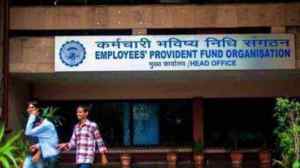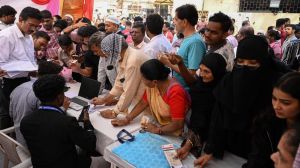Passing the national test
This war, hopefully the last, was thrust upon us. It was aggression, pure and simple. We have responded well, though belatedly, to the ch...

This war, hopefully the last, was thrust upon us. It was aggression, pure and simple. We have responded well, though belatedly, to the challenge. The Army has, as always, risen to the occasion. The government muddled its way through after its initial blunders, but on balance exercised restraint in dealing with a potentially explosive situation.
The international support was a coup of sorts, an asset in conducting military operations in a hazardous terrain. Never before in post-Independence history has India8217;s stand been so powerfully vindicated. This factor alone has contributed to Pakistan8217;s isolation even in the so-called Muslim world, forcing its government to retreat. Nawaz Sharif8217;s military exploits have not gone down well in his own country. Clearly, his calculated gamble has not paid off.
Often, a limited or a full-fledged military operation can lead to short-term gain. But, in the long run, these so-called gains run into rough weather. One8217;s hope is that Pakistan has learnt its lesson and woulddesist from aggression. Kashmir8217;s future, hanging in the balance for over fifty-long years, should be discussed bilaterally.
At the same time, Pakistan8217;s prime minister must know from past experience that the Valley cannot be handed over on a platter just because some armed marauders, mujahidin or no mujahidin, violate the Indian borders. As a leader with a popular mandate, he has no reason to be swayed by the rhetoric of the Islamists or the military establishment.
Peace and diplomacy must also be given a chance at our end. The Shimla Accord and the Lahore Declaration can still be invoked, for reviving the peace process, in our stable and mature democracy. When a nation sits down to do its sums, the rhetoric of war, the sound and fury of the guns, and the politics of revenge and reprisals, would seem utterly futile.
This is what one must learn from post-War Europe. Militarism, now on everybody8217;s lips, is an easy answer to aggression, but not a solution to our long-standing disputes with Pakistan. Thosewho created a war-like climate, and this includes most notably the English-language press and the Star News network, must exercise caution and self-restraint. Militant nationalism, though a saleable commodity in the marketplace in a crisis, must not be allowed to run amok. Flaunting patriotism at the heights of the barren Kargil mountains is hardly a substitute for mature judgment and a balanced appraisal of national priorities.
Once the booming guns are silenced and the euphoria is dissipated by the harsh realities of daily existence, the deep-seated fissures in our polity and society are bound to surface. Yes, the country would be dotted with war memorials, but we will soon forget our war widows and leave our injured soldiers at the mercy of their relatives. The eyes that shed tears in middle-class homes for the dead and wounded soldiers will dry up. The focus this summeracirc;euro;ldquo; from the World Cup to Kargilacirc;euro;ldquo; would shift to yet another battle, this time of the ballot. Somebody would then write a book on the8220;Forgotten Marty rs8221;, to be released at 7, Race Course Road.
The news of the war being over would have reached even the tiny hamlets in Kanyakumari. But the war-mongering continues relentlessly. Such is the rhetoric that one has the creepy feeling that the enemy is perched not on a hilltop in Kargil but within our own society. No cricket matches with Pakistan, declares Kapil Dev. Forever, say Bal Thackeray and Vir Sanghvi in unison. Outside the cricket arena, the 77-year old Dilip Kumar, once a national icon, is targeted. The man, who reached the commanding heights of Indian cinema as an actor, is subjected to harassment by a bunch of goons.
Why? Because his real name is Yusuf Khan. Because he chose to live in Bombay and not Peshawar. Shabana Azmi and Javed Akhtar, whose progressive ancestry is nobody8217;s concern, belong to the Green Brigade8217; because Bal Thackeray says so. You can achieve stardom, but you have to do something different, something extra, to be an 8220;Indian8221;. For this, please turn toThackeray for advice.
From now on, the likes of Thackeray will decide who is a patriot or not. We will be reminded of our heroes and heritage by people who have not even walked through the corridors of a college building. And we, the professional historians, will be made to take lessons in history writing from second-grade polemicists and propagandists. Such is the cheerless prospect, the imminent danger, if those who preach and practice violence begin to define nationalism and patriotism.
Dilip Kumar8217;s only consolation is that self-styled patriots have also vilified a venerable scholar of a prestigious seminary in Lucknow because of certain statements attributed to him, which he has repeatedly denied. I do not agree with Ali Miyan8217;s stand on certain issues, but his extensive writings bear testimony to his commitment to our democratic and secular polity.
This is what he wrote in 1960: 8220;The Muslims are not only citizens of an equal status with anybody in India; they are also among its chief builders andarchitects, and hold position second to none among the peoples of the world for selfless service to the motherland.8221; Even if he had not made these observations, there is no reason for him or anybody else to declare their allegiance to India from their housetops.
That is why I was distressed to note that 8220;Muslim intellectuals8221; found it necessary to express solidarity with the soldiers. By all means do so, but why as 8220;Muslims8221;? Were any of the 8220;Sikh8221;, 8220;Hindu8221; or 8220;Christian8221; intellectuals obliged to act likewise? Did they congregate as religious entity? The predicament of the organisers of the Muslim intellectual meet apart, their anxiety to establish their nationalist credentials does not carry much conviction. Born and brought up in this country, the 110 million Muslims belong not to two circles but the one and one Indian circle. I repeat, the Indian circle.
I return to the first point. Once the anger and excitement are over, we may find that the interests in which India and Pakistan conflictare immeasurably less important than those in which they are at one. Survival is the first and most important of their common interests. This has become a common interest owing to the nature of nuclear weapons.
The essential points, which both sides must realise, are that the continuation of conflict is disastrous to both, and that the gain to be derived from peace is one of quite immeasurable magnitude. Brinkmanship and surrender are by no means the only alternatives.
- 01
- 02
- 03
- 04
- 05































